Brexit and the design industry: ‘It’s hampering creativity’
Three years after Brexit, we asked designers, design entrepreneurs and representatives of British design organisations how the withdrawal from the European Union has affected the design industry
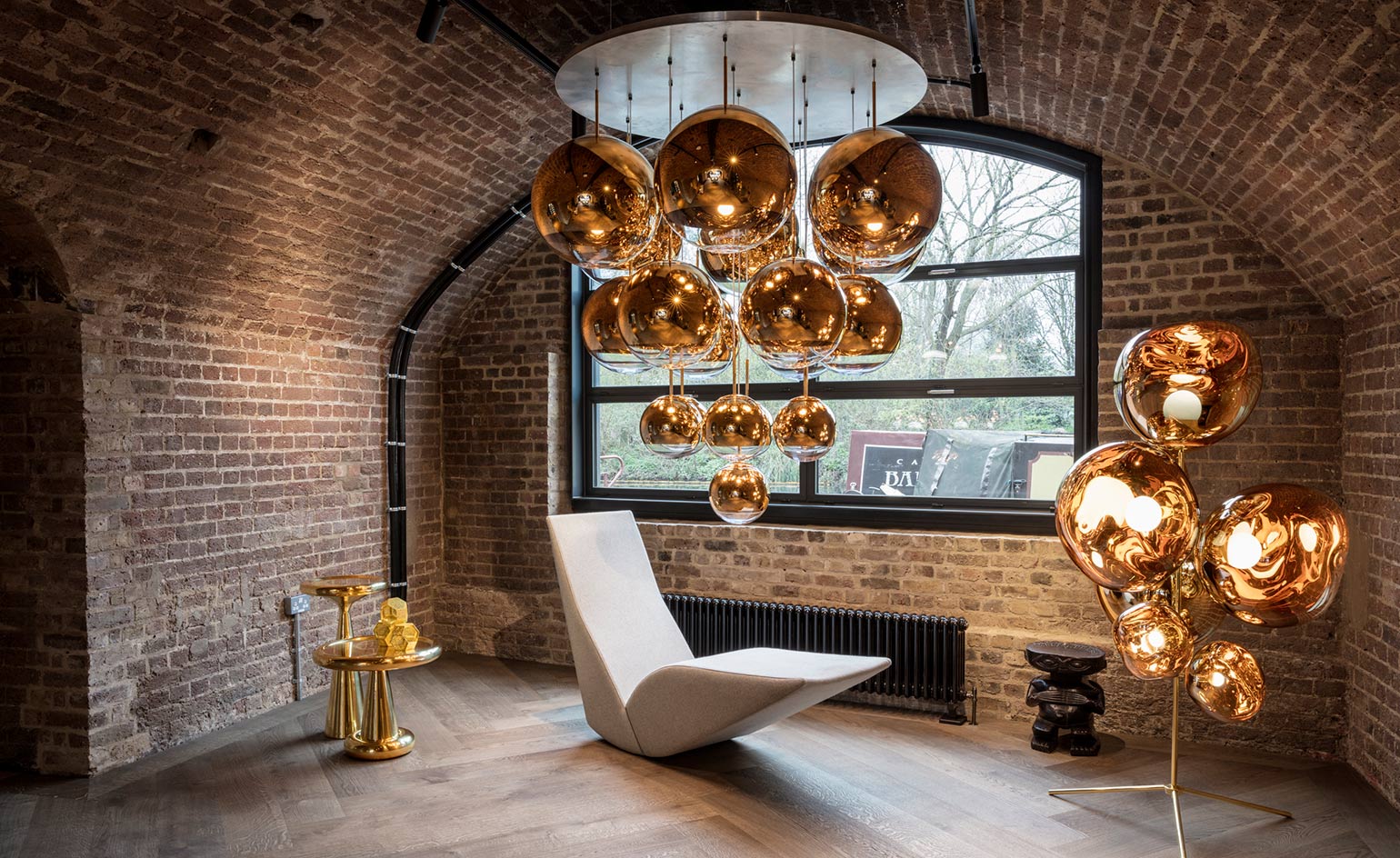
Receive our daily digest of inspiration, escapism and design stories from around the world direct to your inbox.
You are now subscribed
Your newsletter sign-up was successful
Want to add more newsletters?

Daily (Mon-Sun)
Daily Digest
Sign up for global news and reviews, a Wallpaper* take on architecture, design, art & culture, fashion & beauty, travel, tech, watches & jewellery and more.

Monthly, coming soon
The Rundown
A design-minded take on the world of style from Wallpaper* fashion features editor Jack Moss, from global runway shows to insider news and emerging trends.

Monthly, coming soon
The Design File
A closer look at the people and places shaping design, from inspiring interiors to exceptional products, in an expert edit by Wallpaper* global design director Hugo Macdonald.
On 31 January 2020, Brexit came in full force. Three years on, creatives are reevaluating their plans, from the way they run their design practices to their very presence in the UK, as they consider moving their businesses to the EU.
Our explorations on the effects of Brexit on the British design scene started with a casual conversation with Michael Anastassiades. The Cyprus-born, London-based designer has been collaborating with leading European furniture companies (from Flos to Cassina and Molteni & C) while he also runs his own lighting brand, based in the UK. ‘Brexit is killing the industry,’ he told us. Among his current challenges is hiring new members of his team, as European applicants don’t reach him as much as they used to. ‘The UK has become completely unattractive to everybody. People don’t think there’s anything for them here.‘
Post-Brexit: operations and logistics

Faye Toogood's own design brand includes the Dough range of minimalist tableware
For Anastassiades, running his company has become a struggle. He fabricates a lot in Europe, especially Italy, so the process of importing the pieces into the UK is now subject to delays and extra costs. ‘Sales from Europe have dropped significantly, because the system is now far too complex in terms of customs, duties and delays,’ he adds. ‘The bureaucracy running a brand has become 100 times worse, and this is really, really destroying creativity.’
Tom Dixon agrees: ‘My experience so far has been that of an endless quagmire of extra administration and paperwork – of uncertainty and of increased complexity,’ he says. From his Coal Office, Dixon leads a design team working with international brands (most recently, he created a bathroom collection for Turkish specialist VitrA), but also runs his own design company and a restaurant – every aspect of his business has been impacted. ‘Europe is our biggest marketplace for producing goods and also for selling them. It is also the place that a large proportion of our workers come from – particularly in the hospitality sector.’
We also spoke to Faye Toogood, whose British studio regularly works with brands in Europe including Hem and Driade, but, like Anastassiades and Dixon, also runs her own brand of clothing, furniture and objects. ‘The number one issue at the moment for us is operations and logistics,’ she explains. ‘My bill for that has tripled. Post-Brexit, moving any goods or any samples around in Europe costs so much more, and the price of red tape is prohibitively high. I have now had to hire an extra person just to deal with the logistics.’
The diversity of Toogood’s brand means that production is spread across different countries, as she personally selects local craftspeople that can work on specific items. ‘Moving things back and forth from manufacturers to the studio to clients has just made everything so expensive and up to this point, I haven't yet passed that cost on to my customer. But eventually, I'm going to have to start filtering that cost over to the consumer, there won't be another way.’
The UK after Brexit: a loss of talent and potential
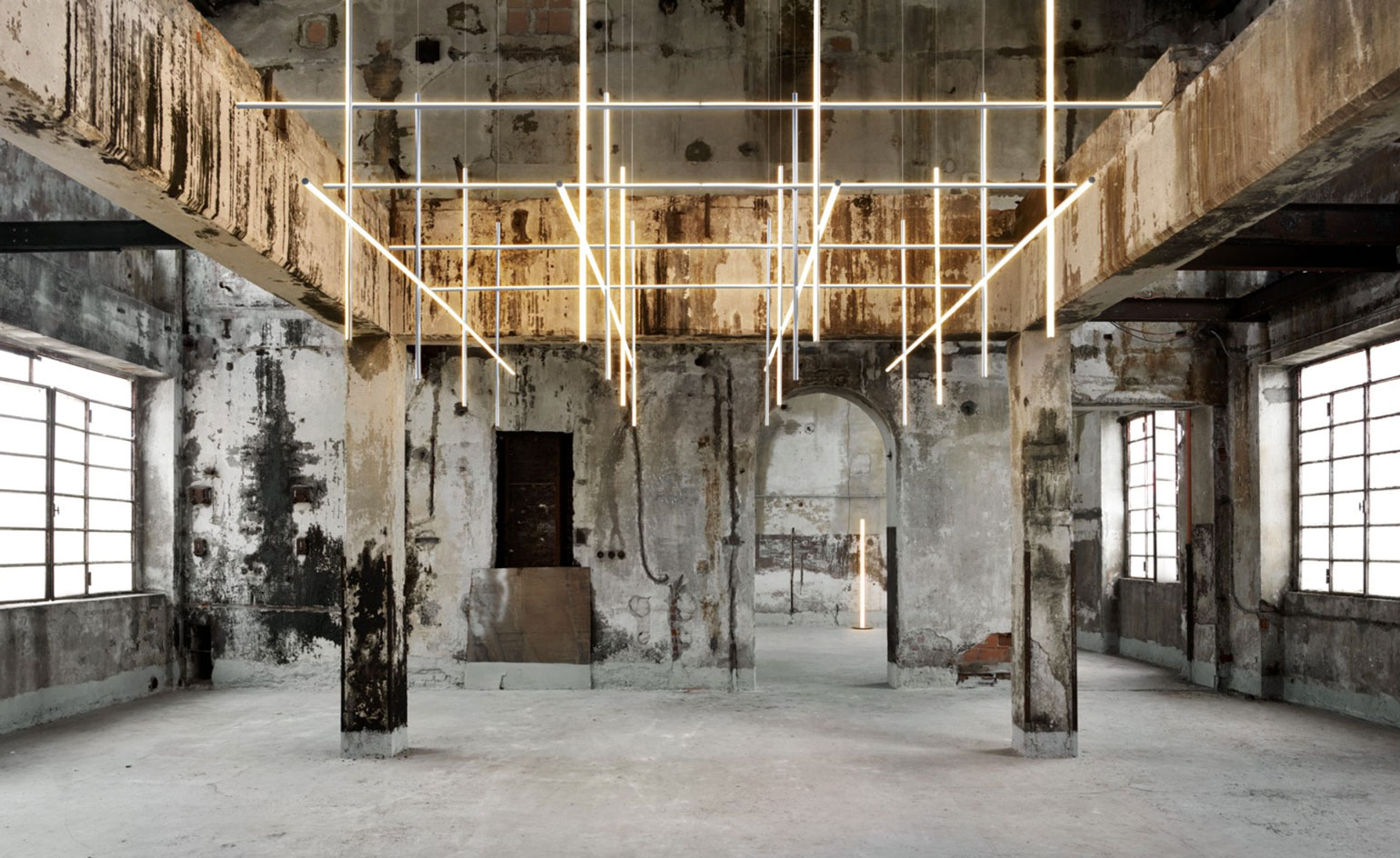
Coordinates ceiling lights by Michael Anastassiades for Flos
‘If London has built a reputation as a global creative capital, it's because we've had decades of talent migration, largely from the European Union,’ says London Design Festival director Ben Evans. His point of view on the matter is uniquely privileged, having welcomed international talent and companies to London for the annual festival for the past 15 years, but also as part of his strategic work with the Mayor of London’s office. ‘The impact of Brexit has been an effective halt to that migration of talent. And there are two reasons for it: firstly, we've made it more difficult to come, but also, people don't feel welcome.
Receive our daily digest of inspiration, escapism and design stories from around the world direct to your inbox.
‘The advantages of London and the opportunities in London are obviously still there. And we have a very, very mature and leading creative economy. We've got the biggest creative economy of any global city, in terms of numbers of people working.’ At the same time, Evans notes, we are both losing new international talent, as people are not applying to design schools in the UK, but also existing talent in the form of people who have come to the UK and are now slowly returning to Europe. ‘I can only see a gradual erosion of the position of strength that we've built over the past 50 years, because to be a magnet for the best talent fuels a successful sector.’
Another effect of the challenges that result from Brexit and its costs to business is the inability of creative entrepreneurs to innovate as they are burdened with navigating a new system. ‘Any extra money that I might have put into special projects, design and innovation, now is just used to cover the bills,’ explains Toogood. ‘Brexit is hampering creativity, research and innovation.’
As chief executive officer of Walpole, Helen Brocklebank has been advising companies across different sectors: the not-for-profit organisation's goal is to promote, protect and develop British luxury brands. ‘The UK has long held its position as a hub of design and creativity, but since Brexit, there has been a sentiment where international clients and companies expressed concern about future relationships with the UK. This context is very, very difficult for businesses,’ she explains.
A feeling of lost community

Sony installation at London Design Festival 2022
But the impact of Brexit on the design community is not just practical. Historically, British designers have always been part of a global creative network, collaborating across borders with institutions and companies. So receiving and processing the news has been hard for most. When asked what was the biggest change coming from Brexit, Dixon says, ‘Separation anxiety! It’s very difficult to measure the actual damage in human relations.’
Toogood echoes those feelings: ‘personally, I felt really devastated by what was happening. I have always celebrated a multicultural studio, and the way that I've collaborated with people across the globe really has meant that I haven't seen any of those barriers. So to be suddenly presented with barriers felt really alienating.’
Leaving the UK
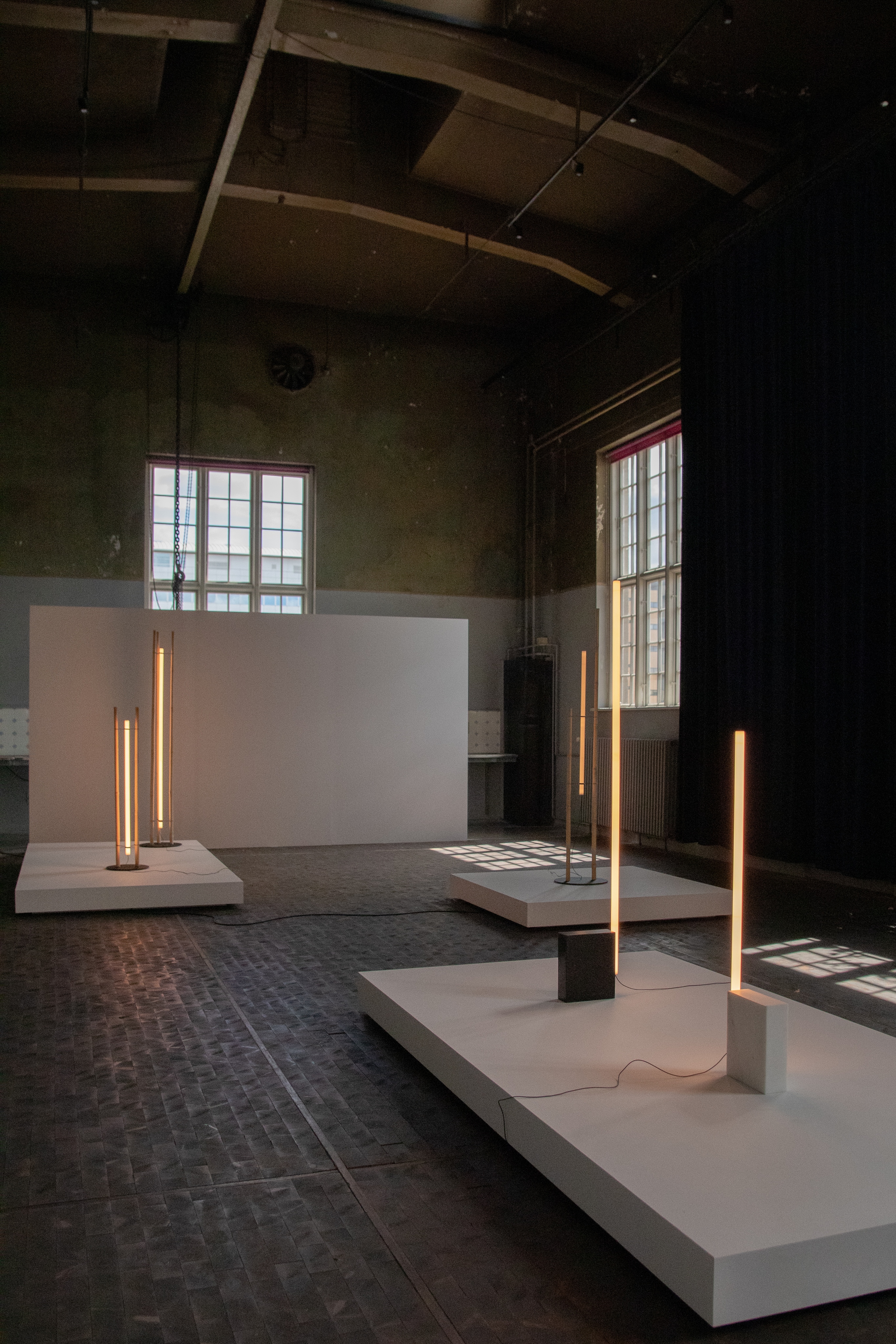
The Relay and Ta-ke lamps by Michael Anastassiades
Leaving the UK is now a realistic option for many designers who are deeply rooted in the city’s creative community. Anastassiades is not sure his business can survive in the UK. ‘If nothing happens, it’s highly unlikely I can keep my business here. I don't think I can survive for that long, but not because we're not doing well. I have to put double the effort and the energy in order to make it work, and it's not acceptable.’
But Anastassiades is not the only one thinking about a move, or at least a European satellite. 'We are already international, with offices in Hong Kong and in New York, I can imagine having a fourth one in Venice or Porto or Riga,’ says Dixon.
Toogood also describes the complexity of exploring the system’s loopholes to survive. ‘I feel like we are literally wading through a treacle of red tape: every single tax advisor we reached out to didn't know what to do with legislation and form filling. I think we probably lost a lot of money from not actually knowing how we could potentially circumnavigate the system. We have set up a company in Ireland, and we're looking to take our logistics out to The Netherlands, because to do it here it is taking a huge amount of time, effort and money.’
British Reputation
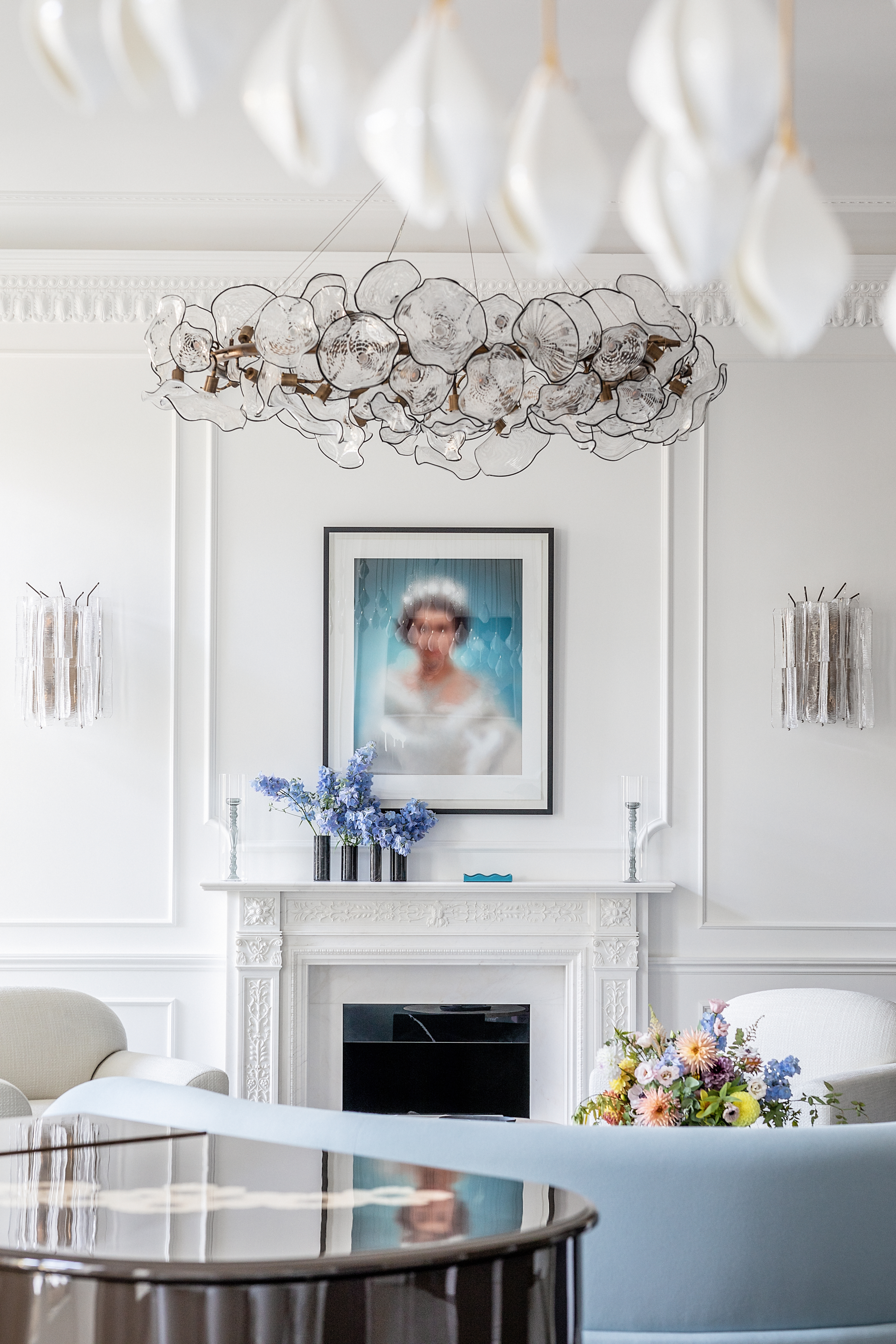
House of Walpole, featuring sofa by Ben Whistler and grand piano by Cambridge-based Edelweiss. Murano glass chandelier by Rocco Borghese
Evans doesn’t see things getting better any time soon, ‘unless a future UK government agrees a new trading arrangement with the European Union, and that effectively brings us back in the free market. While we might never rejoin the European Union, the current difficulties could be addressed. But I think that could only happen with a change of government in this country,’ he says.
‘In the meantime we're still there flying the flag, trying to tell the story of London's distinctiveness, being a centre of ideas, being one of the few genuinely international cities in the world, having great breadth and depth. Across the design or creative sector, we've got excellence in every design field; the structural advantages we have are huge. And, there's a direct correlation between reputation and prosperity.’
Adds Brocklebank: ‘The appetite for British design and creativity is actually really strong. British design still sells well, and that comes with the frustration of feeling that opportunities are a bit hampered. But we should also remember that these are very creative, very entrepreneurial companies, and the reputation of British design internationally is not actually being affected.’
Getting together to design a better future
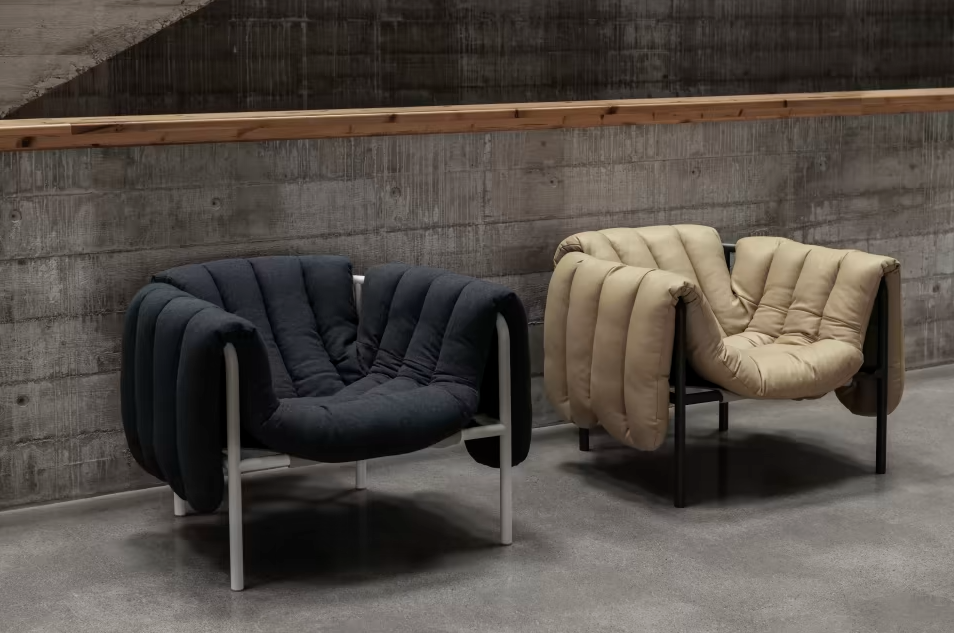
‘When the going gets tough, the creatives get going!’ says Dixon. ‘We will just have less European talent hanging out with us over here – which is a shame. But the UK and London are super resilient and adaptable and will find coping mechanisms and re-emerge in a different way.’
Continues Toogood: ‘I know we'll all find a rhythm again, and that will be a really nice moment, when we can celebrate being back together again.’
Rosa Bertoli was born in Udine, Italy, and now lives in London. Since 2014, she has been the Design Editor of Wallpaper*, where she oversees design content for the print and online editions, as well as special editorial projects. Through her role at Wallpaper*, she has written extensively about all areas of design. Rosa has been speaker and moderator for various design talks and conferences including London Craft Week, Maison & Objet, The Italian Cultural Institute (London), Clippings, Zaha Hadid Design, Kartell and Frieze Art Fair. Rosa has been on judging panels for the Chart Architecture Award, the Dutch Design Awards and the DesignGuild Marks. She has written for numerous English and Italian language publications, and worked as a content and communication consultant for fashion and design brands.